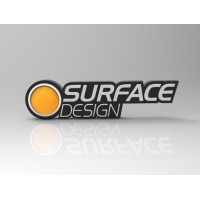
Surface Design
Surface Design is a product design and engineering company that delivers tailored, innovative and accessible solutions for the industry. Integrating creativity and the latest technology applications, our team of professionals in design and engineering keep up with the market fast moving changes adding value in every product we design, develop and produce to satisfy the new industry demands. The company was founded in 2003, year from which we had always investigated and implemented new ways of production and technologies by creating our own products and supplying differentiated and/or cost effient OEM parts. Standing on our core competences in CAD design, computer numerically controlled (C.N.C.) machining, Kevlar or Fiber Glass Composite, plastic printing, thermoforming and injection molding we integrate our creative and technical capabilities to give our clients an effective result in every project. For more information please visit our website www.surfacedesign.com.ar .






